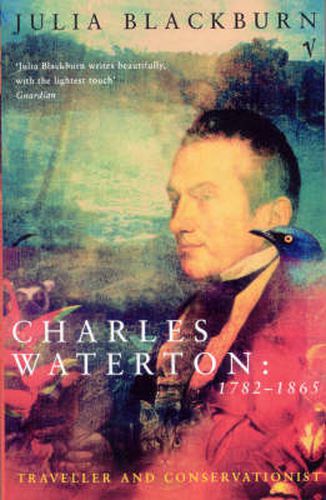Readings Newsletter
Become a Readings Member to make your shopping experience even easier.
Sign in or sign up for free!
You’re not far away from qualifying for FREE standard shipping within Australia
You’ve qualified for FREE standard shipping within Australia
The cart is loading…






Charles Waterton was the first conservationist who fought to protect wild nature against the destruction and pollution of Victorian industrialisation. During his lifetime he was famous for his eccentricities, but also for his achievements and his opinions. A Yorkshire landowner, he turned his park into a sanctuary for animals and birds. As an explorer he learned to survive in the tropical rain forests of South America without a gun or the society of other white men. He was an authority on the poisons used by South American Indians and a taxidermist of note. The huge public that read his books included Dickens, Darwin and Roosevelt. Since his death the memory of Waterton’s personal eccenticities has flourished, while the originality of his ideas and work has often suffered. Using his surviving papers, Julia Blackburn has redressed the balance in a biogr aphy that restores Waterton to his place as the first conservationist of the modern age.
$9.00 standard shipping within Australia
FREE standard shipping within Australia for orders over $100.00
Express & International shipping calculated at checkout
Stock availability can be subject to change without notice. We recommend calling the shop or contacting our online team to check availability of low stock items. Please see our Shopping Online page for more details.
Charles Waterton was the first conservationist who fought to protect wild nature against the destruction and pollution of Victorian industrialisation. During his lifetime he was famous for his eccentricities, but also for his achievements and his opinions. A Yorkshire landowner, he turned his park into a sanctuary for animals and birds. As an explorer he learned to survive in the tropical rain forests of South America without a gun or the society of other white men. He was an authority on the poisons used by South American Indians and a taxidermist of note. The huge public that read his books included Dickens, Darwin and Roosevelt. Since his death the memory of Waterton’s personal eccenticities has flourished, while the originality of his ideas and work has often suffered. Using his surviving papers, Julia Blackburn has redressed the balance in a biogr aphy that restores Waterton to his place as the first conservationist of the modern age.